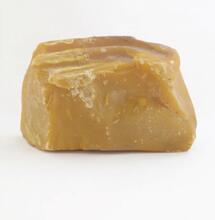Does Olympic Policy Need to Change?

The U.S. athlete Sha'Carri Richardson, suspended from competing in the 2021 summer Olympics following a positive marijuana test, is questioning the recent decision to allow a Russian skater to continue participating in this month's winter games despite her testing positive for a banned performance enhancement substance.
Sha'Carri Richardson's suspension last year began a global dialogue about whether the international sports policy barring Olympians from using cannabis should be removed. It even initiated a scientific appraisal of the policy by the World Anti-Doping Agency (WADA).
The runner is candidly contesting why she faced serious consequences when Russian skater Kamila Valieva who helped her country to bring home the gold in one race. And who is considered the favourite for a separate race has been permitted to compete after testing positive for a banned substance.
On Monday, Richardson stated that she was baffled by the double standard and wanted "a solid answer on the difference between her situation and mines."
"It's all in the skin," Richardson tweeted. "My mother died, and I can't run and was also favoured to place top 3," she wrote, about the personal circumstances that saw her use cannabis legally last year. "The only difference I see is I'm a young black lady."
It would seem to be a legitimate question, as historically, black people have experienced a much higher level of discriminatory behaviour concerning drugs. Richardson also pointed to the fact that cannabis is "not a performance-enhancing drug."
Valieva tested positive for using trimetazidine, which is known to increase exercise duration and improve cardiac performance—effects that could have helped her, for example, historically land the first quadruple jumps made by a woman in an Olympic event this month.
All of this said, there are also some other functional differences between the cases.
For one, Richardson's suspension was a decision made by the United States Anti-Doping Agency (USADA), which does operate in compliance with international athletics rules and has expressed sympathy for the situation but ultimately insisted that its hands were tied.
Valieva was temporarily suspended by the Russian Anti-Doping Agency (RUSADA) after her positive doping test results were disclosed. RUSADA later lifted the suspension. They were then challenged by WADA, the International Olympic Committee (IOC) and the International Skating Union (ISU).
The international body that resolves Olympic disputes, the Court of Arbitration for Sport (CAS), released a statement permitting Valieva to continue participating. However, some penalties were imposed, such as the fact that there will be no medal ceremony held for her event if she finishes in the top three.
While Richardson feels that race may have played a factor in the two different outcomes, CAS noted that the reason was principally related to the fact that the 15-year-old skater is a minor and, therefore, a "protected person" who is subject to a different standard under WADA code.
In a phone interview on Monday, Richard Pound, the first president of WADA, told Marijuana Moment that "certainly, in the Olympics, there's not a racial bias in anything that we do."
The details and endless questions about this case are a great example of how the conjunction of drugs and sports is becoming a broader question.
Richardson stated last year that she'd feel "blessed and proud" if the attention her case raised would affect a policy change for other athletes. Even President Joe Biden himself weighed in on the subject, suggesting that there is a question to answer about whether the cannabis ban should "remain the rules."
Pound commented on the extreme penalty for Richardson's positive cannabis test, saying he doesn't understand why regulators "didn't just say, 'sorry, about your mother, but for god's sake, be careful with this stuff because it's still on the list and you're exposing yourself to the possible sanctions," rather than outright suspend her.








